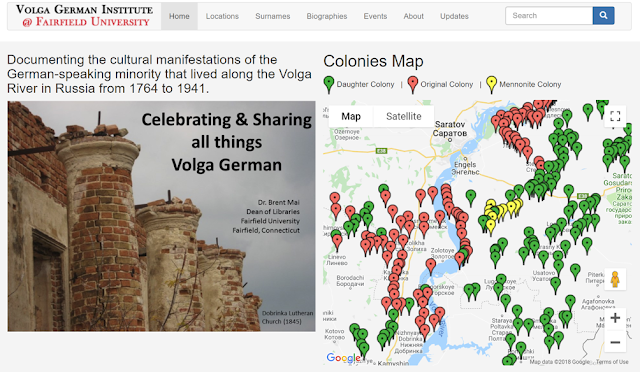Let's digress
for a moment from the tips and talk about some tricks in German
Russian genealogy which can confuse and confound the best of us.
Days, Dates and Calendars offer a unique challenge when looking at Russian records. Here is an example that caused me concern for a few days. My grandfather, Fred Herzog, was born on July 4, 1882. His death certificate confirms this date. And, my mother shared her memories of celebrating his birthday on the 4th of July, the same day the United States commemorates its independence with parades, picnics and fireworks. The two events were tied together for her.
So when I received a Russian document showing his birth date as June 22, 1882, I thought I had information on the wrong Fred Herzog.
It took me a few days to remember the Calendar trick. For a complete explanation of calendar changes, check out Adam Giesinger's article. For a quick update, here is my take on it. The Julian Calendar was established by Julius Caesar. Over years, the calendar fell behind the rotation of the earth around the sun. After much debate and requests for a change, Pope Gregory XIII adopted a new calendar in 1582 which was subsequently called the Gregorian Calendar. Catholic states adopted the new calendar immediately, but Protestant states and Russia adopted the Gregorian Calendar later. Ultimately it was Lenin who finally decreed in 1918 that February 1 would became February 14, thus bringing Russia's calendar in line with the rest of the world. So, any Russian documents before 1918 will not match Gregorian Calendar dates. I was delighted to realize this a few days later, and know that I indeed had a document that pertained to my grandfather.
If you receive a Russian document dated February 10, 1918...beware! And if you are lucky enough to track something in Europe back to October 10, 1582...challenge it!
The second tricky issue with tracking German Russian ancestry is names. German naming conventions are repetitive at best and conflicting at worst.
Although not every family followed these style of naming their offspring, some did and it means that names are repeated each generation, both first names, middle names, and then there is the issue of nicknames. Sometimes every son was named after their father, and was distinguished and called by their middle name...so in one family, you can have a father named Johann Christian, and his sons could be named Johann Christian, Johann Andreas, Johann Peter, Johann Phillip, Johann Heinrich, and so on.
Here is an example from the Jurks of Reinwald. Below is a screen shot of a few of the Jurks names Johann Christian. Of these ten, three were born within four years of each other which makes it very easy to pick the wrong one in your lineage. And, they faithfully followed this naming pattern through generations.
There are also over thirty-five different Heinrich Jurks in the Reinwald censuses.
And that doesn't include the nine Heinrich Jurks listed with their middle names! And there are examples of families who re-use the name of a deceased child for a newborn. Yes, and I have seen it happen more than once.
There are ways to keep your records straight as you work through your family tree and tips that can help you as work through years and years of Russian censuses. Each census builds upon the previous one. The household numbers are an excellent guide to ensure you are tying back to the family you want. The census list includes the household number and the household number from the previous census. Sometimes it matches, but often the numbers vary. Follow the household numbers and relationships carefully. Household movements are also well tracked in the notes so read it all. Check it one day, and if it seems illogical come back to it the next day. The key is to take your time...no need to rush through these records. Being patient and reviewing your information will help you to get this right and make your family history records as accurate as possible.
Next up...more tips as we move to Tip # 7!
©2019 Anna Dalhaimer Bartkowski


























